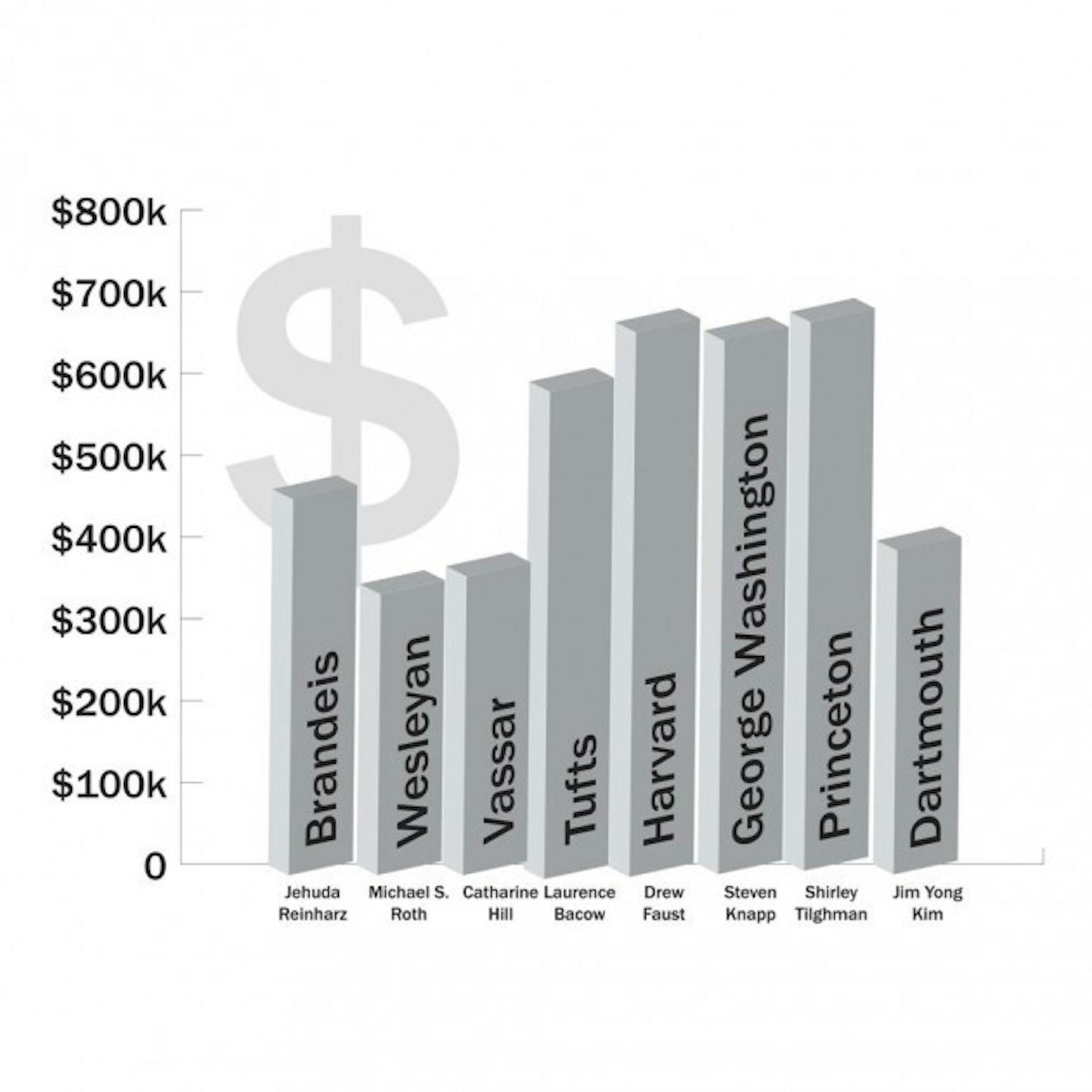Reinharz earned $1.5 million in penultimate year
Then-University President Jehuda Reinharz made $1,536,401 in salary, benefits and other compensation as University president in calendar year 2009, making him the most highly compensated individual at the University during that calendar year, according to Brandeis' federal tax filings.
Reinharz's "base compensation" amounted to $487,352; "other reportable compensation" was $101,457; and "retirement and deferred compensation," which Reinharz did not receive that year, was $825,790.
Reinharz announced his resignation in 2009 after having served as University president since fall 1995, and he officially stepped down when University President Frederick Lawrence began his term on Jan. 1, 2011. Reinharz now serves as the first president of the Mandel Foundation, a philanthropic organization founded by university benefactors, the Mandel brothers. No compensation data was available for that role.
In calendar year 2008, Reinharz's compensation totaled $836,643. The difference between the 2008 and 2009 numbers was due to an increase in "retirement and deferred compensation" from $196,333 in 2008 to $825,790 a year later.
When asked why Reinharz's compensation rose from 2008 to 2009, Senior Vice President for Communications and External Affairs Andrew Gully wrote in an email to the Justice that Reinharz received a new contract in June 2008.
"The Board of Trustees, in approving this package, recognized President Reinharz for his remarkably distinguished 15-year tenure, his strong leadership and the significant milestones he achieved. He was an extremely attractive candidate to other institutions and foundations and the Board wanted to ensure that he remain at Brandeis," wrote Gully.
Other reportable compensation "included benefits such as health, dental, life insurance, and household support and a car allowance," wrote Senior Vice President for Finance and Chief Financial Officer Frances Drolette in an email to the Justice.
"It is important to note that Brandeis is required to report $825,790 in ‘retirement and other deferred compensation' on the Form 990 but he did not receive those funds in 2009," added Gully.
"Deferred compensation is employee income that is typically earned over many years and is paid after a time the income is earned. It is often based upon the number of years of service," wrote Drolette. "President Reinharz received $588,109 in calendar year 2009 in base and other reportable compensation–or 42% of his total compensation. The $825,790 in deferred compensation that was reportable on the 990 will be paid at a later date."
Gully wrote in an email to the Justice that "deferred compensation is a common mechanism in executive compensation packages, including those in higher education, used to defer significant portions of compensation until the executive fulfills his or her term in office."
"At the time when this agreement was reached, Jehuda had been president for more than 14 years and was 64 years old, thus deferred compensation was considered appropriate as part of an overall package," added Gully.
Before the Board approved Reinharz's compensation package, "Brandeis retained Raymond D. Cotton of M.L. Strategies LLC in Washington, a nationally recognized higher education compensation expert, to evaluate the package," wrote Gully.
The review evaluated several aspects, "including compensation at colleges and universities in greater Boston and nationally, the president's long tenure at Brandeis and his accomplishments, and the University's objectives going forward. Taking all those factors into account, the outside expert determined that the compensation package for the president was reasonable," according to Gully.
According to The Chronicle of Higher Education, 30 private college presidents earned over $1 million in calendar year 2008. This number was up from 23 on the previous year's tax filings and The Chronicle has reported a generally upward trend of private college president compensation packages.



Please note All comments are eligible for publication in The Justice.